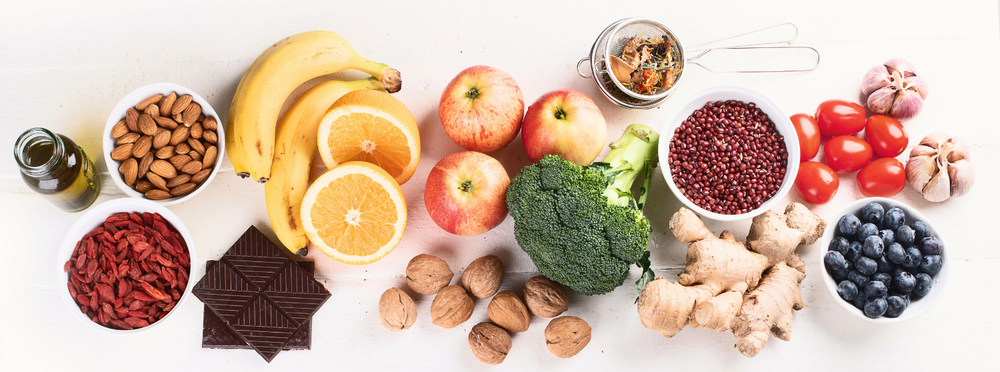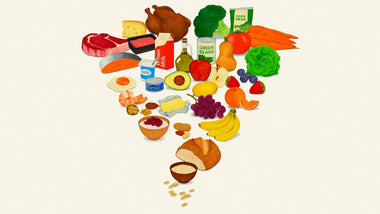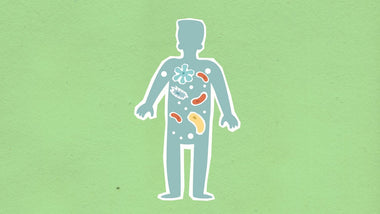Why Food is the Best Source of Antioxidants

If you’ve ever seen an ad for an “age-defying” skin cream, you’ve likely heard of antioxidants. But these protective compounds don’t just help keep skin looking youthful—they play a critical role inside the body as well.
Antioxidants protect us from free radicals, unstable molecules that cause oxidative stress. Oxidative stress damages cells, accelerates aging, and contributes to chronic diseases like heart disease, diabetes, and cancer.
Antioxidants and Heart Health
Oxidation happens throughout the body, not just on the surface. One of the most damaging forms of oxidation occurs when LDL (bad) cholesterol becomes oxidized. Oxidized LDL is significantly more toxic to artery walls and more likely to get trapped in plaque, which contributes to the development and progression of heart disease.
Antioxidants help prevent this oxidation process, reducing LDL’s harmful effects, thus supporting cardiovascular health.
Where Do Antioxidants Come From?
The best sources of antioxidants are plant-based foods—especially colorful fruits and vegetables like blueberries, spinach, carrots, and bell peppers. These foods are naturally rich in a wide array of antioxidant compounds, including vitamin C, vitamin E, flavonoids, and polyphenols.
Unfortunately, fewer than 1 in 10 Americans consume the recommended number of servings of fruits and vegetables each day. Instead, many people turn to antioxidant supplements, contributing to the $60 billion US supplement industry.
Why Whole Foods Work Better Than Supplements
While diets rich in plant-based foods are consistently associated with lower rates of chronic disease, studies on antioxidant supplements have shown minimal or no health benefits. Why? Because nutrients like antioxidants are most effective when consumed in their intended context - as part of a whole food.
For example, blueberries are rich in vitamin C, but that vitamin travels alongside fiber, polyphenols, and other phytochemicals. Together, these compounds create a synergistic effect that supports vitamin C absorption and optimizes bioactivity.
If you isolate just the vitamin C from a blueberry and take it as a pill with a doughnut, you won’t get the same benefit. The body doesn’t recognize or process nutrients in isolation as effectively as it does when they’re delivered with the innumerable cofactors that are required for maximal impact and efficacy.
The Power of Real Food
At Step One Foods, we believe that real, whole ingredients deliver real results. Which is why every antioxidant in our products comes from plants—never synthetic powders or isolated nutrients. This ensures that your body receives antioxidants in a format it knows how to use.
This is also why you will notice Saskatoon berries as an ingredient in every product. Saskatoon berries are like super blueberries and exceptionally high in antioxidants - naturally.
The Bottom Line
If you're trying to boost your antioxidant intake, focus on food, not pills. Eating a variety of fruits, vegetables, nuts, and seeds is the most effective way to protect your cells, reduce inflammation, and support heart health. Supplements may be convenient, but they can’t replicate the full benefits of real food.
Step One Foods makes it easy to get more antioxidants into your daily routine. Our products are packed with whole plant ingredients—carefully chosen for their nutrient content and health benefits.
About Step One Foods: Step One Foods offers convenient, scientifically-formulated foods clinically validated to rapidly reduce cholesterol and improve cardiometabolic health. Real food. Real results. Unapologetically delicious. Learn more at steponefoods.com.

Tested & Proven Results.
- Cardiologist formulated
- Supported by over 500 publications
- Clinically-proven, in a double-blind randomized trial with Mayo Clinic and The University of Manitoba
80% of participants lowered their cholesterol in just 30 days. With just two servings per day, Step One Foods offers a proven-effective way to naturally lower LDL (bad) cholesterol.
Get heart health tips and articles like this, delivered right to your email.
New articles every week.
You may also like...

The Heart of the Matter: The Engine That Makes Whole-Body Health Possible

The New Food Pyramid: What It Gets Right (and What It Misses)

You don’t need to avoid foods with cholesterol…except for these


